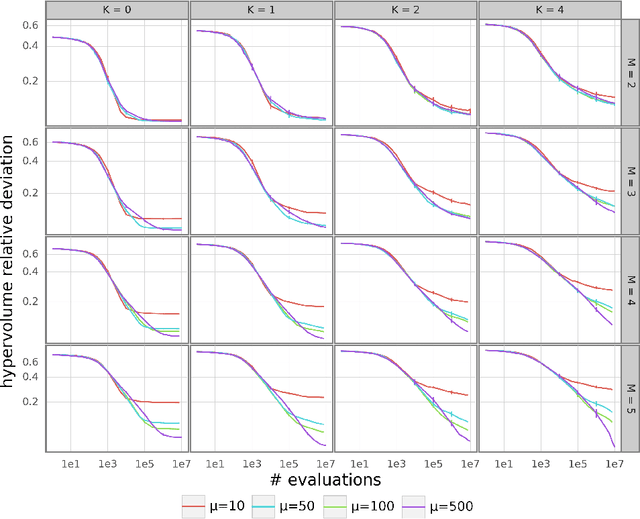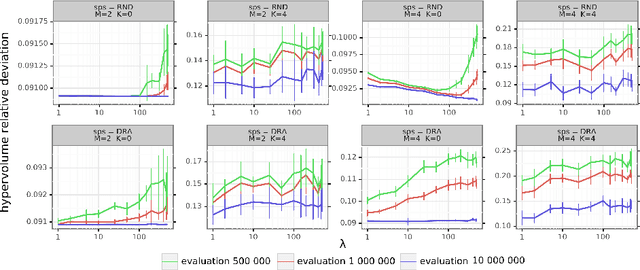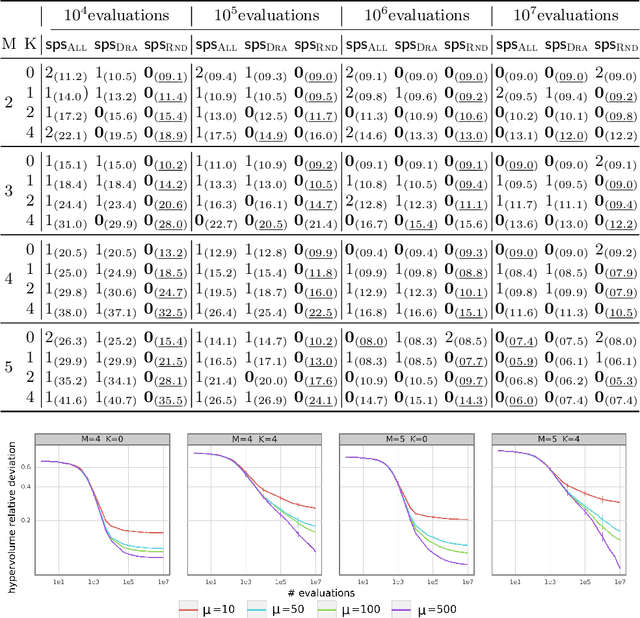Geoffrey Pruvost
BONUS
On the Combined Impact of Population Size and Sub-problem Selection in MOEA/D
Apr 15, 2020



Abstract:This paper intends to understand and to improve the working principle of decomposition-based multi-objective evolutionary algorithms. We review the design of the well-established Moea/d framework to support the smooth integration of different strategies for sub-problem selection, while emphasizing the role of the population size and of the number of offspring created at each generation. By conducting a comprehensive empirical analysis on a wide range of multi-and many-objective combinatorial NK landscapes, we provide new insights into the combined effect of those parameters on the anytime performance of the underlying search process. In particular, we show that even a simple random strategy selecting sub-problems at random outperforms existing sophisticated strategies. We also study the sensitivity of such strategies with respect to the ruggedness and the objective space dimension of the target problem.
 Add to Chrome
Add to Chrome Add to Firefox
Add to Firefox Add to Edge
Add to Edge